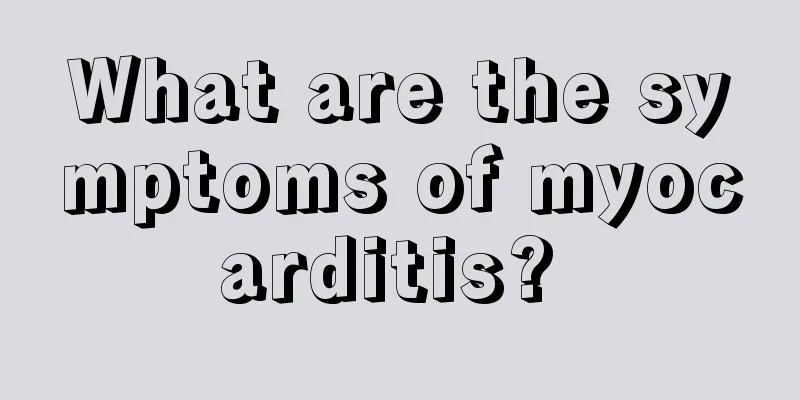What are the symptoms of myocarditis?

|
Heart health is something that no one can take lightly, because the heart plays a vital role and has systemic effects. Once there is a problem with the heart, life safety may be threatened. Therefore, protecting the heart is a key concern for people, and there are many heart diseases. For example, myocarditis is a relatively common disease. Let’s take a look at the symptoms of myocarditis. Myocarditis refers to inflammatory lesions of the myocardium caused by various reasons. Various factors such as infection, physical and chemical factors can cause myocarditis. The severity of the myocardial damage caused varies greatly, and the clinical manifestations are different. Mild patients have no symptoms, while severe patients may suffer from heart failure, cardiogenic shock and even sudden death. Most patients can recover after treatment, but some patients develop dilated cardiomyopathy after the acute phase and may suffer from recurrent heart failure. Myocarditis can occur in people of all ages, but is more common in young and middle-aged people. Symptoms: 1. For myocarditis caused by infectious reasons, there are often symptoms of primary infection first. For example, viral ones often have fever, sore throat, cough, vomiting, diarrhea, muscle aches, etc. Most of the symptoms of myocarditis appear 1 to 3 weeks after the viral infection. 2. Patients with heart failure as the main manifestation may experience various symptoms of heart failure such as dyspnea; 3. In severe cases, cardiogenic shock may occur and related symptoms of shock may appear; 4. If the inflammation involves the pericardium and pleura, symptoms of chest tightness and chest pain may occur; 5. Some patients may also have symptoms similar to angina pectoris. Common physical signs include sinus tachycardia that is not parallel to body temperature, sinus bradycardia and various arrhythmias may also occur. Heart border enlargement accounts for 1/3 to 1/2 of patients, which is seen in severe myocarditis. Heart enlargement can cause mitral or tricuspid valve regurgitation, systolic murmur at the apex or left lower edge of the sternum, diastolic gallop rhythm and weakened first heart sound may be heard in patients with severe myocardial damage or heart failure, pericardial friction sound may be heard in patients with pericarditis, and mild cases may be completely asymptomatic and sudden death may occur. |
<<: What disease is tinnitus a symptom of?
>>: My ears feel swollen and blocked, what's going on?
Recommend
How to remove yellowness from the face
Sometimes in life, we find that some people's...
Explain the three main symptoms of laryngeal cancer
Clinically, laryngeal cancer refers to the cancer...
What are some good places for family travel
If you want to travel with your family, where sho...
What causes sigmoid colon cancer
Sigmoid colon cancer is a type of colon cancer. E...
Why do people get thyroid disease?
Thyroid diseases are more serious in the summer a...
Why does the skin feel cold in summer
We all know that the weather is very hot in summe...
What ointment should I apply after being bitten by a midge
If you are bitten by midges in your life, it is e...
What are the specific manifestations of late-stage rectal cancer symptoms
In recent years, rectal cancer has become one of ...
What exercises can you do to prevent prostate cancer?
As we all know, cancer is the number one killer t...
Why does the steamed bun turn yellow?
Pure alkali steamed buns are still quite popular ...
How to wash off oil stains on clothes
Generally speaking, some children easily get oil ...
Can patients with colorectal cancer do strenuous exercise?
After patients are diagnosed with colorectal canc...
How can people delay aging
Aging is a process that everyone has to go throug...
How to use an ice pack
In the hot summer, many people who go out to play...
cf211 is too high
In life, when people talk about cancer, they chan...









